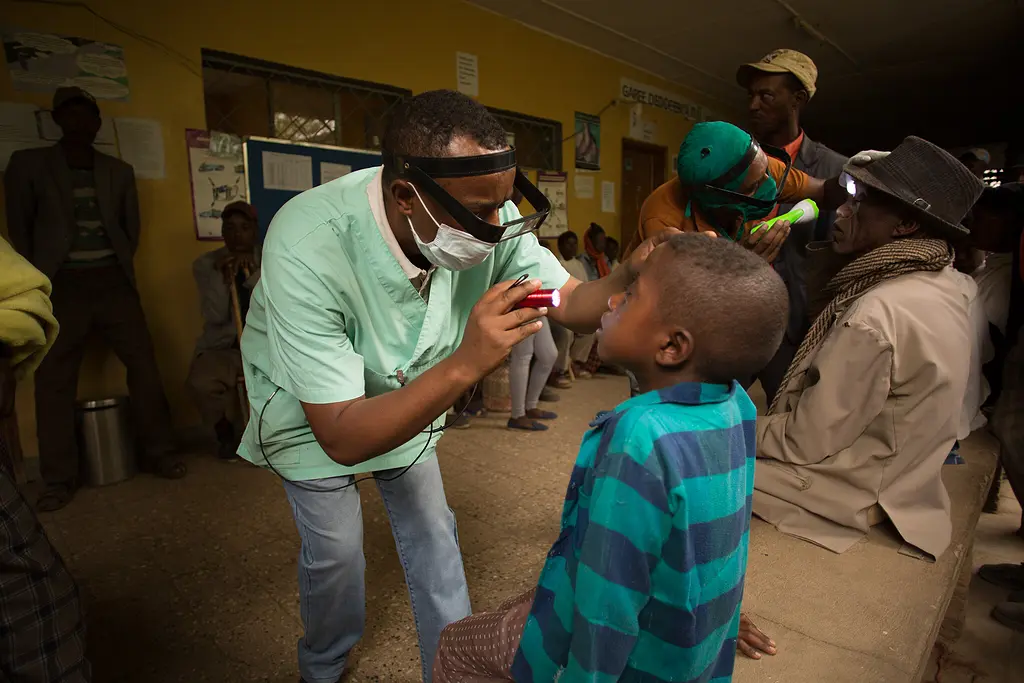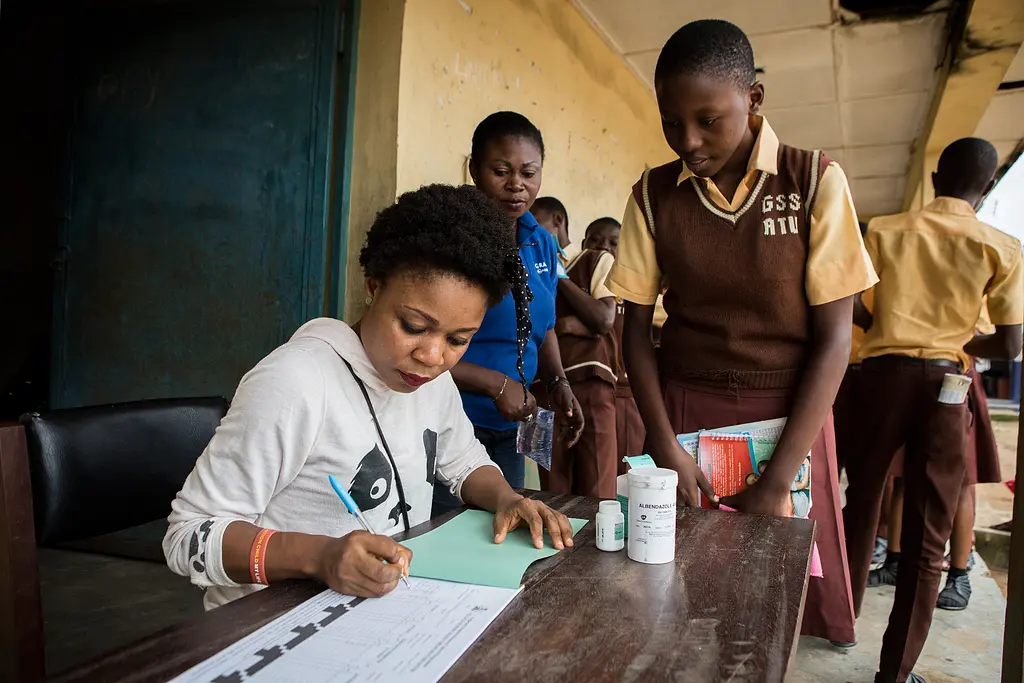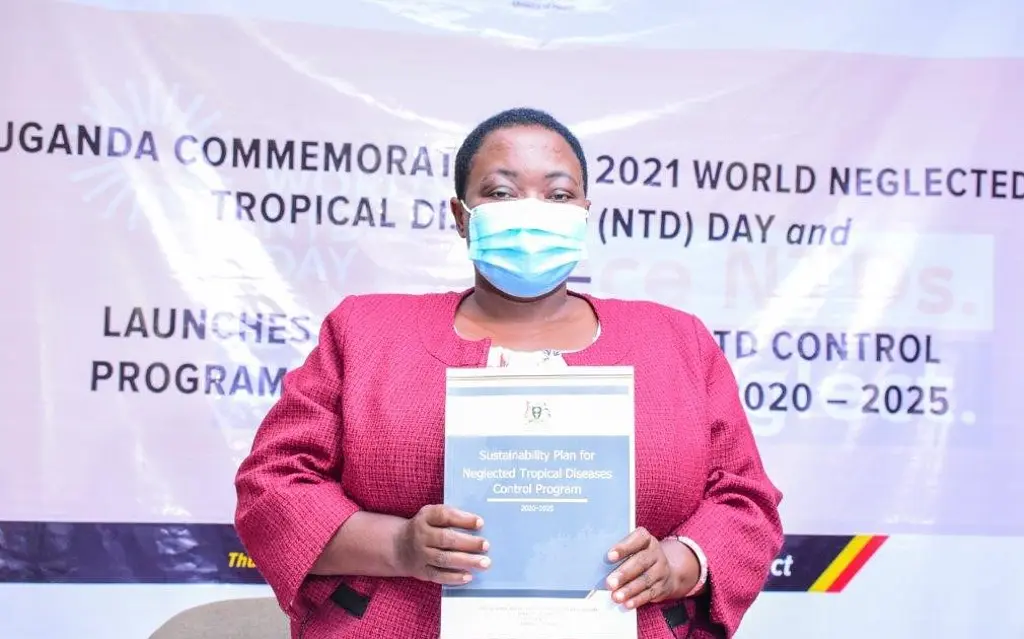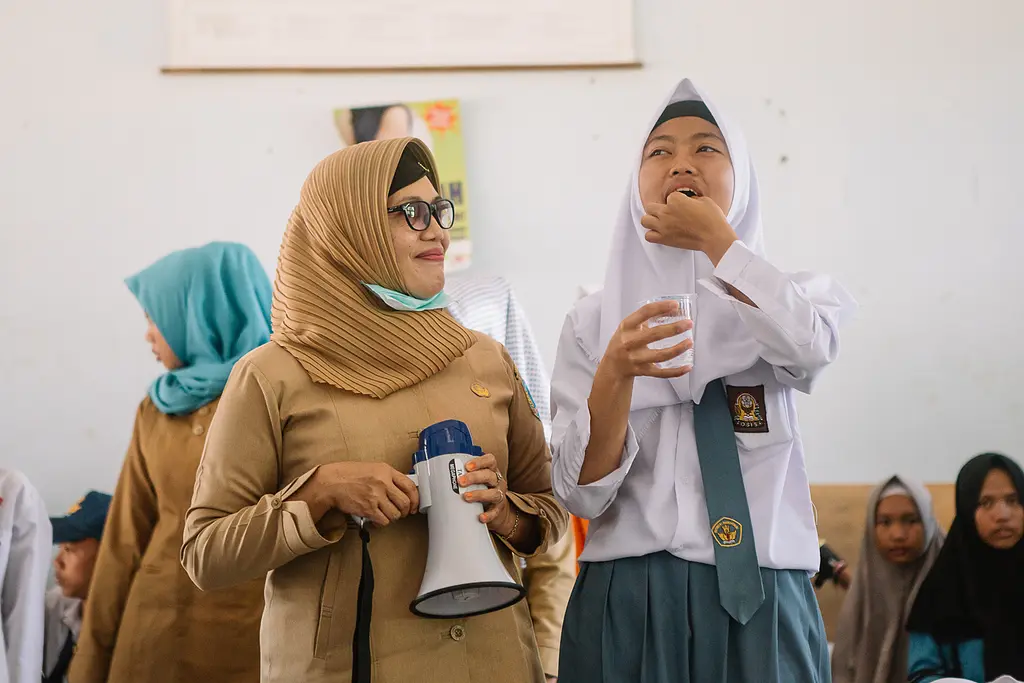Over the past two decades, countries have made incredible progress against neglected tropical diseases (NTDs). In many places, the elimination of common NTDs like trachoma and lymphatic filariasis (LF) is within sight.
But the work is not over. Even after countries eliminate NTDs, they must stay vigilant by using focused strategies to sustain progress and ensure diseases do not return.

On USAID’s Act to End Neglected Tropical Diseases | East program, sustainability is not just a desired by-product of our work, but a necessary goal on its own and a critical way that we work to achieve disease-specific targets in Africa, Asia, and the Americas.
We spoke to expert Richard Killian, Act | East’s Health Systems Strengthening Lead, about why this is an important moment for the sustainability of NTD programs. Mr. Killian is passionate about improving health and has spent his career working to strengthen health systems.
What is the current state of global progress against NTDs?
It has been an exciting time for me—as someone with many years of health systems strengthening experience—to join the NTD community. The global NTD landscape is shifting. The tremendous progress we’ve seen to date means sustainability is more important than ever. The NTD community must identify opportunities to apply the capacity built, maintain or expand upon accomplishments, and take a more holistic approach.
To do so, we need a paradigm shift to look at how NTD programs fit into national health systems and engage with related sectors. NTD progress has mostly been achieved through a vertical approach supported by external financial, technical, and material support. The next phase requires a continued commitment of financial and human resources—a larger proportion of which may need to be mobilized domestically.
The COVID-19 pandemic, and past shocks such as the Ebola crisis, have also reinforced the importance of resilient national health systems that can withstand and respond to urgent priorities and shifts in resources.
Speaking of strong health systems, are efforts to achieve NTD program sustainability and to strengthen health systems the same thing?
That is a good question. Health systems strengthening refers to efforts to improve one or more core health system functions to help ensure all people—especially the vulnerable and marginalized—can access quality health services. Sustainability can be thought of as a result of a strong health system. In the case of NTDs, sustainability is achieved when a country has a strong health system that can deliver high quality NTD interventions for as long as required. This requires countries to assess the current state of sustainability of their NTD programming and to identify, prioritize and address gaps.
A more sustainable NTD response must also recognize that health systems don’t operate in a vacuum. Other sectors—including finance, education, water and sanitation, and agriculture—share targeted groups and service delivery platforms. For example, many NTD programs work with ministries of education to distribute deworming drugs at regular intervals to children at school. When thinking about resources for NTD programming, we therefore need to identify and leverage contributions of other sectors and partners for greatest impact. For example, vibrant mechanisms for joint planning and coordination, whether based in health or other ministries, can enhance information sharing for multisectoral collaboration.
Learn more about RTI’s work in controlling and eliminating neglected tropical diseases.
How is Act | East advancing sustainability?
I am proud of our program’s commitment to working both within and beyond health systems. We are helping countries explore how to mainstream NTD programming into broader government planning and budgeting processes. Our NTD Sustainability Analysis and Planning Consultation Guide helps countries identify and prioritize gaps, develop feasible solutions, and monitor and measure their progress. It outlines specific steps and options for carrying out a multi-sectoral, multi-level sustainability consultation process with government, academia, civil society, donors, and implementing partners.
How is Act | East using the tool?
After piloting the tool and consultation process in Uganda and Tanzania, and also using the guide to develop a sustainability plan in Ethiopia, Uganda is now the first country to release its sustainability plan.
It is fitting that Uganda is on the cutting edge of sustainability efforts given it has always been a leader in progress against NTDs. Indeed, Uganda has already eliminated Guinea worm disease and is on track to eliminate both LF and trachoma by 2025.
Uganda’s sustainability plan for NTD programming is comprehensive, realistic, and based on a highly participatory assessment and plan development process. Led by Uganda’s Ministry of Health, the plan builds on the country’s achievements and assets in the fight against NTDs and addresses prioritized gaps with targeted multi-year strategies and activities. Notably, the Uganda sustainability plan includes a focus on gender equity and social inclusion as a key element in “reaching the last mile” of coverage and sustaining the progress.
The goal is for all those at risk for NTDs in Uganda to have access to sustainable, equitable, and quality NTD services.
What are the challenges when it comes to working on sustainability?
We have found that countries are generally open and enthusiastic about engaging on sustainability and agree with the principles of increasing country ownership for NTDs and other health services.
These activities do, however, come with challenges. NTD program officials must invest in engagement and evidence-based advocacy with other parts of government, which can take time out of an already busy schedule fighting NTDs. They must also build coalitions of advocates and stakeholders to increase the visibility and priority of these ‘neglected’ diseases.
Influencing changes on policies, processes, and budgets does not happen overnight and requires robust, reliable programmatic and financial information. NTD advocacy must also consider that other programs and initiatives are vying for limited domestic resources.
What’s next?
In addition to our direct support to countries and health ministries, the Act | East team also supported the World Health Organization (WHO) to develop the NTD Sustainability Framework for Action. As a companion piece to the WHO NTD road map for 2021-2030, the framework will guide sustainability efforts for NTD services at both global and country level.
While the COVID-19 pandemic has reminded us that setbacks are possible, many countries are laying a sustainable foundation to ensure their communities no longer worry about NTDs—and can lead healthier, more prosperous lives now and in the future.



